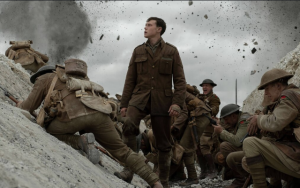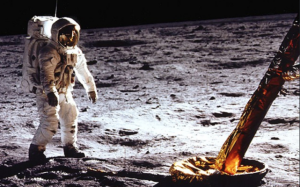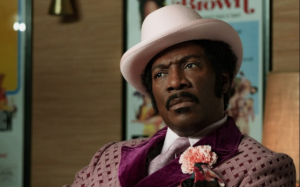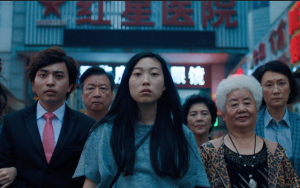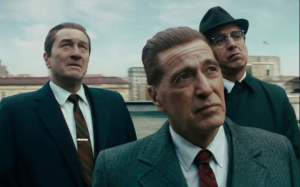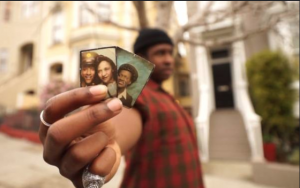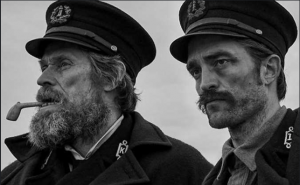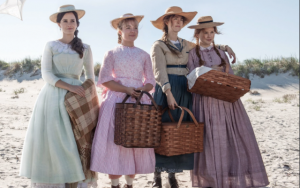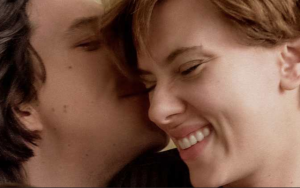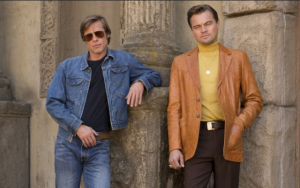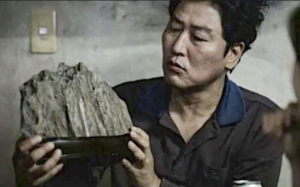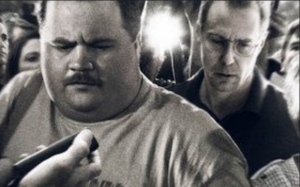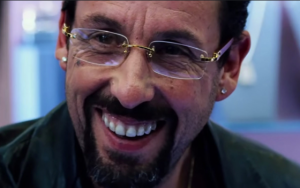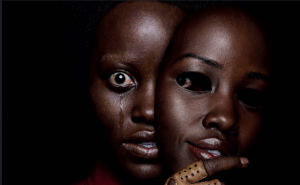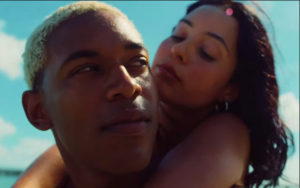VALENTINE’S DAY MOVIES FOR EVERYONE! LOVERS AND HATERS OF THE DAY!
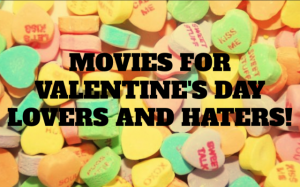 VALENTINE’S DAY MOVIES FOR LOVERS!
VALENTINE’S DAY MOVIES FOR LOVERS!
THE BIG SICK: The old maxim, “Write what you know,” holds true for comedian and actor Kumail Nanjiani and writer Emily V. Gordon who turned their personal relationship into the new film “The Big Sick.”
When we first meet Kumail (“Silicon Valley’s” Kumail Nanjiani) he is an aspiring comic and Uber driver with a traditional Muslim family who wants him to settle down and give up stand up. He strings them along, agreeing to dinners with women his mother (Zenobia Shroff) chooses for him—“Be a good Muslim and marry a Pakistani girl,” she says—while pretending to be a dutiful son, but his passion is comedy.
One night, at an open mic in a small club, an audience member interrupts his show. Later he confronts her at the bar. “You shouldn’t heckle comics,” he says. “I didn’t heckle, I woo-hooed,” says Emily (Zoe Kazan) and the flirting begins.
What begins as a casual fling—“I’m not really dating right now,” she says. “School and work. A lot on my plate.”—soon turns serious as they both admit they are overwhelmed by one another. Still, he is reluctant to meet her parents and disappears once a week for dinners with his family and his mother’s meet-and-greets with prospective wives.
Kumail loves Emily but can’t find the way to tell his parents he is dating someone outside their faith. When Emily discovers this she asks, “Can you imagine a world where we end up together?” Unsatisfied with his namby-pamby answer, she breaks up with him.
Months later he’s woken from a deep sleep. He’s told Emily is in the hospital and needs someone to stay with her. She has a massive infection in lungs, needs to be put in a medically induced coma and until her parents, Beth (Holly Hunter) and Terry (Ray Romano) arrive, Kumail has to make some difficult decisions.
Calling “The Big Sick” a rom com doesn’t do it justice. It is much more than that.
There are no major revelations here, just a carefully balanced look at the immigrant experience—“ The rules don’t make sense to me,” Kumail says to his parents. “Why did you bring me here if you didn’t want me to have an American life?”—ambition, family and the nature of true love. It’s funny, but not laugh-a-minute funny, just comfortably charming as it navigates the cultural and medical landmines in Kumail and Emily’s path.
It works so well because of the chemistry between the leads. Kumail and Emily do the heavy lifting for the first half until she becomes ill. They spark in the most natural and sweetest of ways as their relationship goes from casual to serious, from good to bad.
A STAR IS BORN: “A Star is Born” was originally filmed in 1937 and subsequently remade three times, most famously (until now) as a rock musical starring Barbra Streisand and Kris Kristofferson in 1976. Bradley Cooper directs and stars in the latest version, one that hits all the right notes.
Cooper plays Jackson Maine, a rock star with magnetism to spare but carrying around a guitar case overflowing with personal problems. Drug addicted and alcoholic, he’s a troubled guy who falls for Ally (Lady Gaga) after seeing her perform a tour de force version of “La Vie En Rose“ in a bar. It’s love at first sight. He’s attracted to her talent and charisma; she is wary but interested. Soon they become involved, personally and professionally. As their romance blossoms her star rises meteorically as his fades slowly into the sunset.
It’s a familiar story given oxygen by rock solid direction, music with lyrics that forwards the story and two very good, authentic performances.
Cooper, all easy charm and weathered smile, digs deep to play a good man undone by his addictions but Lady Gaga equals him. Gaga sheds the theatricality of her pop persona, creating a soulful character that mixes vulnerability and combative independence. Stripped down, she is rawer than we’ve seen her before in a performance that feels authentic and not a musician playing a musician. It helps that she and Cooper have chemistry to spare—from their mentor and student relationship to their romance—but make no mistake this is a performance that stands alone.
In addition to the romance and music “A Star is Born” has something to say about art. In a time when the arts are under siege by government cuts and pre-packaged pop culture the film emphatically reminds us, both in practice and in its themes, that artists are here to actually say something. Everything else is just product. “Music is essentially twelve notes between any octave; twelve notes and the octave repeats. It’s the same story told over and over. All any artist can offer the world is how they see those twelve notes.”
“A Star is Born” could have been product, a glitzy film with a heartthrob and a pop star in the leads but instead resonates with real feelings and heartfelt emotion.
CRAZY RICH ASIANS: “Crazy Rich Asians,” based on the phenomenally successful books by Kevin Kwan, is a mix of “Cinderella” and a rom com with a side order of “Pride and Prejudice.”
Constance Wu plays Rachel Chu, an NYU economics professor, who dates historian Nick Young (Henry Golding). After a year of seeing one another he invites her to his best friend’s wedding and to meet his family in Singapore. She jumps at the chance because she knows nothing about them. Every time she brings up the family he changes the subject. “Maybe his parents are poor and he has to send them money,” says her mother Kerry (Kheng Hua Tan).
Turns out just the opposite is true.
When it begins to dawn on Rachel that his family is well off she asks him straight up. “We’re comfortable,” he says. “That is exactly what a super rich person would say,” she says. He is the son of unimaginably rich parents, the wealthiest people on the island. Nick is prince charming, a good-looking heir to a fortune who downplays his status. “Damn, Rachel, says Goh Peik Lin (Awkwafina), “he’s like an Asian Bachelor.”
She is the Meghan to his Harry but there are problems. Catapulted into a world of opulence Rachel finds herself under scrutiny. Nick’s family doesn’t approve of her job, her background or the fact that a single mother raised her. “If Nick chooses me,” she says to his mother Eleanor (Michelle Yeoh), “he would lose his family. And if he chooses his family, he might spend the rest of his life resenting you.”
“Crazy Rich Asians” is an effervescent concoction so fizzy it’ll make your tongue tingle. A glittery surface built around a solid chassis, it contains a bit of something for everyone, from romance and Lifestyles of the Rich and Singaporean to melodrama and philosophy, from exotic locations to comedy. But at its heart it is the story of a woman, Rachel, who is secure enough in her own place in the world to not be seduced by the cornucopia of riches on offer. It’s about character and how it relates to individualism versus tradition.
The plotting is pure rom com—couple fall in love, are forced apart and (SPOILER ALERT ONLY IF YOU’VE NEVER SEEN A ROM COM BEFORE) yet find a way to make their love work despite all obstacles—but it is populated with appealing characters to guide the story.
SING STREET: Ask any male musician why they joined a band and 99 out of 100 will tell you it was for one very simple reason. To meet girls. Art, money and fame are often far distant second place to the lure of the opposite sex. Such is the case with Conor (Ferdia Walsh-Peelo) a fifteen-year-old school by with a crush on Raphina (Lucy Boynton) in the new musical romance “Sing Street” from director John Carney.
Fuelled by jittery new wave music, this Dublin set coming-of-age story is a crowd pleaser. Call “Sting Street” a neo “The Commitments” if you like—the two have much in a common, a strong soundtrack, a scrappy Dublin setting, a charming cast of unknowns—but the story of music’s power to change and uplift lives is a potent one. Director John Carney says the story is partially autobiographical and his personal touch elevates what could have been a run-of-the-mill rite-of-passage/dream girl story.
Walsh-Peelo and Boynton are appealing central characters (even if the other band members are underwritten) but it is the music that binds it all together. In one bravura fantasy sequence Cosmo imagines his video for “Drive It Like You Stole It” as an elaborate restaging of the prom scene in “Back to the Future,” complete with choreography and 1950s costumes. Instead of simply being a flash set piece, Carney works in all of Conor’s issues into the visuals, entertaining the eye and furthering the story. There isn’t a cynical bone in “Sing Street’s” body. It celebrates risk taking, romance and underdogs in a story that is as joyful as it is tuneful.
HER: In our busy lives it’s very possible we spend more quality time with machines, our ever-present technology, than with our loved ones. We certainly spend more intimate time with our earbuds than with our significant others, ask Siri questions all day and lovingly stroke our keyboards as if they were the silky-smooth hands of our intendeds. So the premise of “Her,” a (slightly) futuristic romance from director Spike Jonez about a man who falls in love with the operating system of his computer, doesn’t feel that far fetched. Or does it?
Set in the near future “Her” begins with Theodore (Joaquin Phoenix), an unhappy, soon-to-be-divorced writer, buying a new computer with an advanced operating system designed to meet his every need. It sorts e-mail, keeps track of his appointments and helps him navigate through the information age. It also speaks with a raspy, flirty voice that sounds suspiciously like Scarlett Johansson. Named Samantha, she helps organize his life but soon their back-and-forth takes on a tone more in line with old school 976 phone calls than high tech banter.
Their connection might be unconventional, but the film’s approach to the subject isn’t. It’s a romantic movie that explores the essence of relationships. The gimmick is the idea of marrying technology to romance, but the core is a primal love story.
Phoenix’s delicate performance embodies the way that technology both isolates and bonds us all. He’s a melancholy presence, alienated from friends and co-workers, but longing for a connection with someone or something. In this quiet, intimate performance he makes us believe in and accept the story’s eccentric premise.
As good as Phoenix is, and he’s very good, the performance that will stay with you is Johansson’s vocal work. We never see her, but her raspy, expressive voice is a near constant presence, and she creates a character with words, not actions.
“Her” is an oddball story, but it’s not an oddball film. It is ripe with real human emotion and commentary on a generation’s reliance on technology at the cost of social interaction.
ANTI-VALENTINES DAY MOVIES (Cupid’s arrow isn’t aimed at the heart)
- As The War of the Roses the movie’s original poster wryly declared, “Once in a lifetime comes a motion picture that makes you feel like falling in love all over again… this is not that movie.”
MARRIAGE STORY: 4 STARS: “Marriage Story” is not a first date movie. It is a three hankie, emotionally fraught movie about appealing but damaged people whose divorce is filled with a sense of loss and a growing shroud of incivility.
Adam Driver is Charlie, a hotshot avant-garde theatre director living and working in Brooklyn, New York with his wife Nicole (Scarlett Johansson). She is a former movie star with a list of teen comedies to her credit. They met at a party, instantly fell in love, had son Henry (Azhy Robertson) all was well until it wasn’t. Charlie may have slept with a stage manager but it’s Nicole’s growing dissatisfaction that widen the chasm between them. “I never really came alive for myself,” she says. “I was only feeding his aliveness.”
What begins as a simple conscious uncoupling becomes complicated when Nicole accepts a starring role on a television series based in Los Angeles, taking Henry to live with her. The family, stretched between two coasts and two careers, wears thin and soon the pressures of the split take their toll. “It’s not as simple as not being in love anymore,” says Nicole.
On my way into the press screening for “Marriage Story” a publicist handed me a small package of Kleenex branded with the movie’s logo. “I won’t need these,” I thought. “I’m a professional, here to dispassionately judge this film on its merits. I made it through ‘Kramer vs. Kramer’ like a dry-eyed superman and if I can do that, I can do anything.” I’m not too proud to tell you that I was glad I had the Kleenexes. “Marriage Story” is so agonizingly vivid, so without melodrama, that I felt at times as though I was a voyeur, that I shouldn’t be watching some of these emotionally charged scenes. As Charlie and Nicole drift apart and lawyers, like the ruthless Nora Fanshaw (Laura Dern in full beast mode), become involved the idea that they might have a chance of staying friends once this is all said and done becomes heartbreakingly remote.
Driver and Johansson convincingly play the bond that made them a couple and as it unravels both reveal the fatal flaws that drove a wedge between them. The two actors, unshackled from the constraints of the blockbusters that pay for their Italian castle retreats, dig deep, wallowing in their character’s self-absorption and anger.
“Marriage Story” may not be a great choice for a first date but the emotional, sincere truth Baumbach and cast wring out of the material is best seen with a companion, or at the very least a package of Kleenex.
THE LAST FIVE YEARS: A musical based on Jason Robert Brown’s Off-Broadway hit of same name. Catchy tunes, with both sad lyrics—“Jamie has new dreams he’s building upon”—and happy words—“It never took much convincing to make me believe in you”—are designed to melt your heart as a romance blossoms and wilts.
It’s the story of the five-year relationship between actress Cathy (Anna Kendrick) and her novelist husband Jamie, played by Smash star Jeremy Jordan. Their love affair is told from two different perspectives. Her storyline begins with the breakdown of the relationship. His starts at the beginning (it’s a very good place to start, as they say in musical theatre) as they court and eventually marry. The topsy-turvy structure delivers heartbreak and hopefulness, often in the same scene.
BLUE VALENTINE: “Blue Valentine,” a character study starring Ryan Gostling and Michelle Williams, starts off with the loss of a beloved family pet and ends on an even more downbeat note.
The non-linear story begins in present day. Dean (Gostling), Cindy (Williams) and their daughter Frankie (Faith Wladyka) are a family unit teetering on the edge. Notes of tension are infused in their conversation and the only thing that seems to bond the couple is their love for Frankie. For the next 100 minutes we learn about them by jumping around on their relationship’s timeline; how they met—while visiting people at an old folks’ home—and how a once happy pairing fell prey to distrust and difficulty.
The break up of Dean and Cindy’s marriage is not only painful for their make-believe movie family but for the viewer as well. Emotionally raw is good. So is heart-wrenching. But the repetition with which both these aspects of the story are displayed wears down any feeling the viewer may have for either character. It’s like watching a couple bicker on the subway. You feel sorry for them but hope they’ll get off at the next stop.
REVOLUTIONARY ROAD: The first time we saw Kate Winslet and Leonardo DiCaprio on screen together they were lovers in the midst of a huge disaster, Leo gasping for air as the cold waters of the Atlantic beckoned him to his death. In “Revolutionary Road,” their first pairing since then, they once again play lovers, but this time they are drowning in a sea of shattered dreams, infidelity and boredom.
Based on a novel by Richard Yates—it was a finalist for the National Book Award in 1962 along with Catch-22 and The Moviegoer—it sees Frank (DiCaprio) and April Wheeler (Winslet) leaving the exciting world of New York City to raise their children in a quiet Connecticut suburb. Dreams and aspirations on hold—she wanted to act, he just wanted something exciting. “I want to feel things,” he says. “Really feel things. How’s that for an ambition?”—they get on with their work-a-day lives, until April has an idea to shake up their lives and save their decaying marriage. When the rescue plan falls apart, both April and Frank crumble under the weight of their stultifying suburban life.
It’s a movie that celebrates life’s failures, a partner’s inadequacies and the heaviness of a life unfulfilled. There’s no king of the world here and the only thing that goes down in flames is their marriage.
Set in 1955 it’s a peak behind the curtain of the lives of a seemingly perfect couple. They are popular, beautiful; their neighbors love them. “You’re the Wheelers!” one says, as if that’s all there is to say about their supposedly idyllic life. Behind the curtain it’s a different story.
Repression oozes from April as she tries to come to grips with the fact that she isn’t one of the “special people” she always dreamed she would be. Feeling like she has sold out her life and dreams of being a famous actress to settle down and have children has given her a severe case of the suburban blues. We soon learn she’s not alone, that the neighbors, with their carefully manicured lawns and freshly waxed cars, also have secrets. This is Blue Velvet without the severed ear or Mad Men without the glamour. It’s a penetrating, raw look at what happens when disappointment and regret become life’s motivating factors.
Revolutionary Road is bleak. It has the dry, stark feel of a British “kitchen sink” drama and while it is a brave film for all concerned—Winslet, DiCaprio and director Sam Mendes—it is so unremittingly unwelcoming, so brutal in its take on the human condition that I can’t recommend it to a wide audience.
THE BREAK-UP: “The Break-Up” was marketed as a romantic comedy, but really it is more a battle of the sexes—make that exes—with more in common with “The War of the Roses,” a nasty divorce movie from 1989, than a traditional romantic comedy. Imagine if Ingmar Bergman had directed “When Harry Met Sally.”
The romance part of the film is dismissed early on with a montage of pictures of the couple in their salad days, holding hands, kissing, on vacation. The viewer gets the idea that they were once a happy pair, but fifteen minutes into the film after a screaming match following a disastrous dinner party their union is shattered. Brooke (Aniston) still loves Gary (Vaughn) but wants him to learn to respect her. He’s a man-child who doesn’t get it and their relationship frays into a he said/she said battle in which ownership of their beautiful condo becomes the main issue.
The movie has an odd tone, at once playing on the strengths of its stars—Vince Vaughn is once again the fast-talking charmer, Jenifer Aniston the pretty, girl-next-door type—while also playing them against type. Vaughn crosses the line from charmer to homophobic jerk, a guy so obnoxious the audience is actually happy during a scene in which he gets beaten up. Aniston effortlessly handles the comedic portion of her role and is quite good in the dramatic bits, but I’m not sure that given her recent real-life romantic history that audiences want to see Rachel… rather Aniston break down into tears over a man.
There are laughs here, particularly in the scenes between Vaughn and his Swingers’ co-star Jon Favreau, but they are generally followed by long stretches of uncomfortable tension. Because we see so little of the couple in the honeymoon phase of the relationship, when things go sour we don’t really care. It’s like watching strangers argue in a restaurant. You may be compelled to look in that train wreck kind of way, but ultimately it is unaffecting.
This is a perfect date movie if you plan on dumping the person you’re with when the movie is over.

